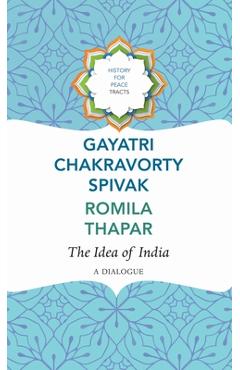Aesthetic Education in the Era of Globalization

Detalii Aesthetic Education in the Era
libris.ro
156.73 Lei
Biography
Gayatri Chakravorty Spivak
Aesthetic Education in the Era - Disponibil la libris.ro
Pe YEO găsești Aesthetic Education in the Era de la Gayatri Chakravorty Spivak, în categoria Biography.
Indiferent de nevoile tale, Aesthetic Education in the Era of Globalization din categoria Biography îți poate aduce un echilibru perfect între calitate și preț, cu avantaje practice și moderne.
Preț: 156.73 Lei
Caracteristicile produsului Aesthetic Education in the Era
- Brand: Gayatri Chakravorty Spivak
- Categoria: Biography
- Magazin: libris.ro
- Ultima actualizare: 11-04-2024 01:14:23
Comandă Aesthetic Education in the Era Online, Simplu și Rapid
Prin intermediul platformei YEO, poți comanda Aesthetic Education in the Era de la libris.ro rapid și în siguranță. Bucură-te de o experiență de cumpărături online optimizată și descoperă cele mai bune oferte actualizate constant.
Descriere magazin:
During the past twenty years, the world's most renowned critical theorist-the scholar who defined the field of postcolonial studies-has experienced a radical reorientation in her thinking. Finding the neat polarities of tradition and modernity, colonial and postcolonial, no longer sufficient for interpreting the globalized present, she turns elsewhere to make her central argument: that aesthetic education is the last available instrument for implementing global justice and democracy. Spivak's unwillingness to sacrifice the ethical in the name of the aesthetic, or to sacrifice the aesthetic in grappling with the political, makes her task formidable. As she wrestles with these fraught relationships, she rewrites Friedrich Schiller's concept of play as double bind, reading Gregory Bateson with Gramsci as she negotiates Immanuel Kant, while in dialogue with her teacher Paul de Man. Among the concerns Spivak addresses is this: Are we ready to forfeit the wealth of the world's languages in the name of global communication? "Even a good globalization (the failed dream of socialism) requires the uniformity which the diversity of mother-tongues must challenge," Spivak writes. "The tower of Babel is our refuge." In essays on theory, translation, Marxism, gender, and world literature, and on writers such as Assia Djebar, J. M. Coetzee, and Rabindranath Tagore, Spivak argues for the social urgency of the humanities and renews the case for literary studies, imprisoned in the corporate university. "Perhaps," she writes, "the literary can still do something."

Produse asemănătoare

An Aesthetic Education in the Era of Globalization, Paperback/Gayatri Chakravorty Spivak
![]() elefant.ro
elefant.ro
Actualizat in 02/07/2025
164.99 Lei
Produse marca Gayatri Chakravorty Spivak

A Critique of Postcolonial Reason: Toward a History of the Vanishing Present - Gayatri Chakravorty Spivak
![]() libris.ro
libris.ro
Actualizat in 05/06/2025
294.35 Lei

The Idea of India: A Dialogue - Gayatri Chakravorty Spivak
![]() libris.ro
libris.ro
Actualizat in 08/04/2025
76.43 Lei